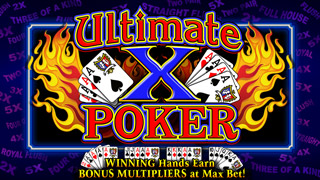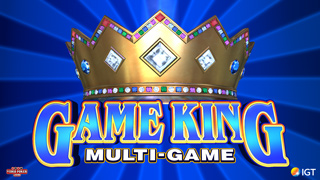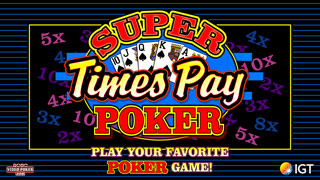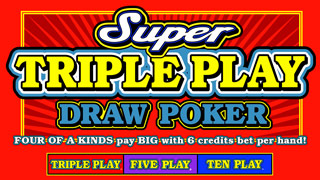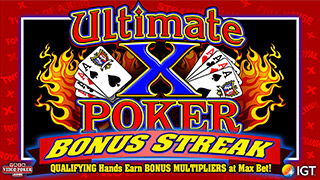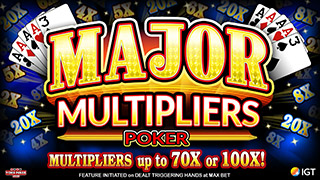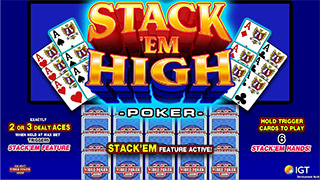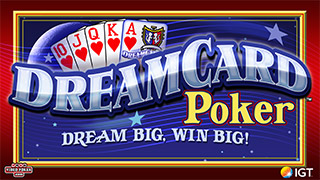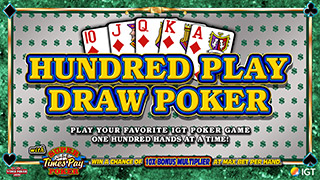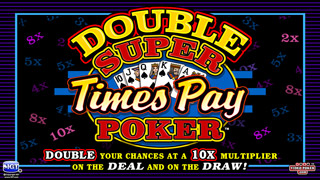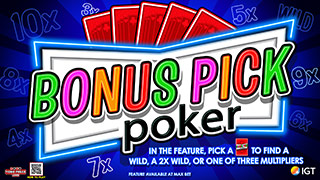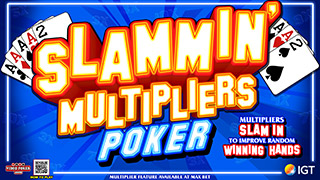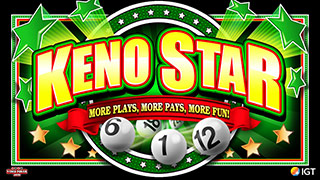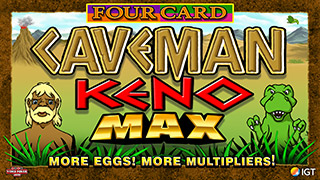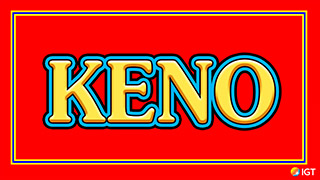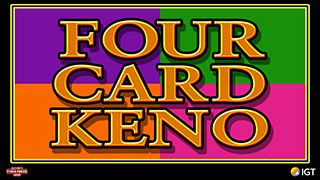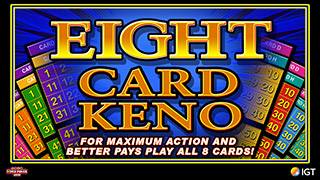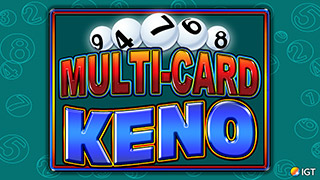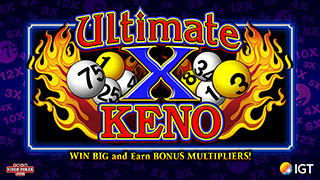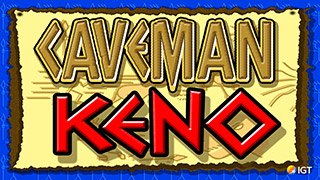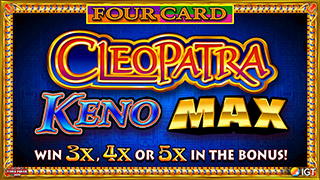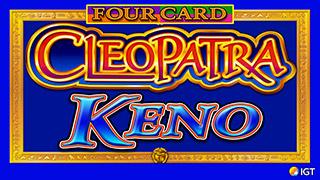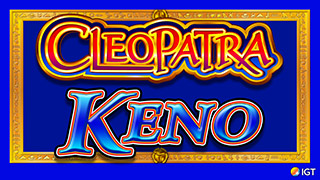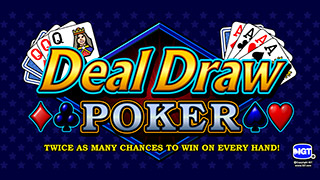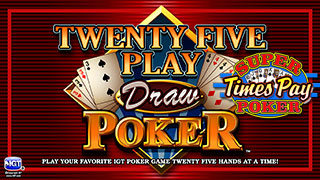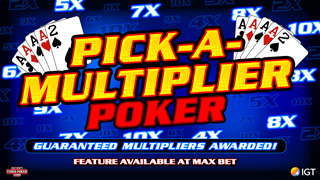How much do we still not know?
-
williejoe
- Forum Rookie
- Posts: 31
- Joined: Sat Jul 28, 2012 10:29 am
Re: How much do we still not know?
well, i think we have fairly well exausted what we can say concerning how a random deal of the cards in a game of vp can and/or could work. unless someone recently and directly involved in programming these machines at igt comes forward with details ( can't be a currently employed by igt ) ----there will be an onging debate. so i won't bother going further in the various methodologies of reseeding the games and/or switching prng algorithms. i'll be the first to admit that while i suspect some "tilting" to be afoot----i really don't know. and it could be that the games in vegas and biloxi are really "fair and random".
my next supposition involves how the vp machine ( program ) chooses to display the randomly dealt cards. after many years of playing vp and playing probably hundreds of thousands of hands----i do suspect that "how the randomly selected ten cards are displayed" is "managed" in such a way as to tilt the game in the casino's favor-----but still be deemed a random deal and within all the regulations. while the newer machines supposedly continously shuffle the cards between draws----we rally don't know this for a fact that this happens all the time-----and if in fact the machine chose to periodicly stop doing this---it would'nt violate any regs. if a machine selects more than cards on its initial hand and then displays five-----how the program chooses to display these first five cards can make a big difference in what cards you hold and therefore the outcome of the hand. how many times have you been dealt four to a flush on the first five cards----and not get the fith matching suit in the next five cards. there have been many times over the years that this pattern has presisted for so long that i began to hold a low pair vs going for the fith card to make the flush ( playing TDB and DDB ). i do realize this could all be part of the hot and cold segments of the random number stream-----but sometimes i wonder.
my next supposition involves how the vp machine ( program ) chooses to display the randomly dealt cards. after many years of playing vp and playing probably hundreds of thousands of hands----i do suspect that "how the randomly selected ten cards are displayed" is "managed" in such a way as to tilt the game in the casino's favor-----but still be deemed a random deal and within all the regulations. while the newer machines supposedly continously shuffle the cards between draws----we rally don't know this for a fact that this happens all the time-----and if in fact the machine chose to periodicly stop doing this---it would'nt violate any regs. if a machine selects more than cards on its initial hand and then displays five-----how the program chooses to display these first five cards can make a big difference in what cards you hold and therefore the outcome of the hand. how many times have you been dealt four to a flush on the first five cards----and not get the fith matching suit in the next five cards. there have been many times over the years that this pattern has presisted for so long that i began to hold a low pair vs going for the fith card to make the flush ( playing TDB and DDB ). i do realize this could all be part of the hot and cold segments of the random number stream-----but sometimes i wonder.
-
Vman96
- Video Poker Master
- Posts: 3298
- Joined: Tue Jul 26, 2011 12:49 am
You can write a program to do whatever you want. I know slots have a min payback of like 80% or something so I guess this applies to VP as well. So they can do whatever as long as it pays out at least 80%. I don't think it says anywhere in the Regulations that a 9/6 JOB must payout 99.76 or whatever %. So the deal maybe random but after that whos knows what the computer does. I don't think its documented anywhere exactly but that could explain why a majority of my handpays have been dealt this year lol.
Yes, you can write a program to do whatever you want, but most states have regulations that gaming machines that simulate live casino games must have gameplay behave exactly like the live game would. (e.g. observe the probabilities of a random poker deck). It doesn't have to exactly be worded this way like in the ever-so confusing New Jersey regulations for example. But they still reach the same logical conclusion, the game is played from a random poker deck.
Whether you want to argue that casinos set the machines to not be random and violate their state's laws, that's a whole other argument obviously.
Also video poker is subject to minimum payback regulations yes, but I have yet to see a paytable below 90%.
-
EDC1977
- Video Poker Master
- Posts: 2001
- Joined: Wed Aug 15, 2007 3:12 pm
Ed I was thinking about Chris the other day. And as for farcebook, I will NEVER, (I am shouting here) NEVER be involved with them as long as they continue to ask me to friend Chris. Understood Ted. I was just asking you to tip that tinfoil hat to CD.
-
shadowman
- Video Poker Master
- Posts: 3587
- Joined: Mon Oct 23, 2006 5:42 pm
I have always wondered what the motive would be for executives at a fortune 500 company like IGT to "tilt" a rng in the favor of casinos. Since these executives answer to their shareholders and not casino slot directors I just don't get the logic behind these claims. All it would take is one whistle blower programmer and their jobs would be toast.
-
sam434343
- Senior Member
- Posts: 259
- Joined: Sat Jan 16, 2010 3:26 pm
williejoe, You hit the nail on the head, unless someone comes forward(from one of these corporation) and says they programmed these chips to do a certain thing, there is going to be doubts in a lot video poker players(humans) Some of them just don't want to put down on paper(lol)or the internet. And what you said about how you play DDB & TDB I do the same thing keep the small pair,90% of the time. Getting the flushes hard to do. Thanks for all your information williejoe. Sam
-
DaBurglar
- Video Poker Master
- Posts: 4535
- Joined: Thu Jun 16, 2011 12:11 pm
I have always wondered what the motive would be for executives at a fortune 500 company like IGT to "tilt" a rng in the favor of casinos. Since these executives answer to their shareholders and not casino slot directors I just don't get the logic behind these claims. All it would take is one whistle blower programmer and their jobs would be toast.
I will say this, I WISH what you just typed were in fact the truth, I WISH that is how things worked and the real world held to this standard and line of thinking, the world would be a better place. But it is not nor is this as simple and straightforward as you describe.....first off, I am positive employees at a firm like IGT sign over all their rights to disclosure concerning ANYTHING even remotely proprietary or sensitive; second, yes execs do answer to shareholders, but they also answer (in a more immediate and urgent manner) to CUSTOMERS, and the PROFITS demanded by shareholders come from customers, such that if all the execs were straightlaced law abiding Honest Abe-types, and yet failed to perform, they'd still be toast; alternatively, if they bent (and even broke) a few regs or laws but delivered huge profits, they'd most certainly NOT be toast, it just doesnt happen that way; they'd more likely be reassigned or given a cushy "retirement", and this ONLY if the law broken was something Uber serious....and again, assuming some prosecutor or governing body has nothing better to do than nail them (also not likely in this day and age) But alas, I submit if a casino customer specifically asks for machines/chips that perform in some funky irregular manner that falls outside of a specific states regs, it would NOT be IGT's problem ultimately, unless they really screw the pooch and flat out LIE by providing ironclad certifications that the modified chips/machines DO (or DO NOT DO) whatever they certified them against doing or not doing! What probably happens is a casino asks for modified chips and IGT supplies them but does not give the certs, or provides certs but with a whole lot of legalese giving them wiggle room and escape clauses so that if the casino gets in trouble (which is ALSO highly unlikely) IGT is not liable.
-
Tedlark
- Video Poker Master
- Posts: 8764
- Joined: Mon Oct 02, 2006 12:29 am
[QUOTE=Tedlark]Ed I was thinking about Chris the other day. And as for farcebook, I will NEVER, (I am shouting here) NEVER be involved with them as long as they continue to ask me to friend Chris. Understood Ted. I was just asking you to tip that tinfoil hat to CD.[/QUOTE]
No worries Ed, I am wondering though just how Chris would have responded to some of the more recent issues raised in the forum?
Crooked IGT executives, crooked NJ video poker, crooked ADA management, crooked, yada yada yada...
No worries Ed, I am wondering though just how Chris would have responded to some of the more recent issues raised in the forum?
Crooked IGT executives, crooked NJ video poker, crooked ADA management, crooked, yada yada yada...
-
Quad Deuces
- Senior Member
- Posts: 318
- Joined: Fri Feb 17, 2012 6:23 pm
first off, I am positive employees at a firm like IGT sign over all their rights to disclosure concerning ANYTHING even remotely proprietary or sensitive; That would carry no legal weight concerning activity that was outright illegal, such as this.
-
EDC1977
- Video Poker Master
- Posts: 2001
- Joined: Wed Aug 15, 2007 3:12 pm
[QUOTE=Tedlark
Crooked IGT executives, crooked NJ video poker, crooked ADA management, crooked, yada yada yada...[/QUOTE] Very much like OEJ, He would have taken it with a grain of salt.
Crooked IGT executives, crooked NJ video poker, crooked ADA management, crooked, yada yada yada...[/QUOTE] Very much like OEJ, He would have taken it with a grain of salt.
-
williejoe
- Forum Rookie
- Posts: 31
- Joined: Sat Jul 28, 2012 10:29 am
remember, i do think that igt delivers machinces to states like nevada and mississippi that meet their states regulations----i do believe that in the "long term" ( which no one can achieve ) these machines deal a random selection of cards from a 52 deck of cards using some fairly sophisticated algorithms. and this is probably validated by the state regulatory commissions at some frequency. and once the casino has chosen its paytable for a particular game----then its payout is set ----and in the long term the machince will certainly meet it's overall payout. it is my opinion that this aspect of vp is very much fair and "on the level". but because no one plays for the long term-----in the normal intervals that we do play, a number of avenues are technically and legally open to igt and/or the casino to "manage the game" in a manner that is advantageous to the casino.
in past threads we have already covered one way----namely how and when these algorithms are seeded ( or reseeded )
and since these algorithms are deterministic ( i.e., known and documented "hot and cold" segments----any extremly long random srting will exhibit this characteristic ); reseeding and/or switching to a new prng algorithm can impact the short-term for the player. and there is nothing about this that would make the game non-conforming to state regulations---and the game would still be deemed to be a fair and random deal from a 52 deck of cards. so no one has to worry that the casino or igt would have non-complying games.
now, back to my most recent post. a vp machine (program) does deal a random set or cards as determined by the prng. but it is my conjecture that how these cards are displayed to the player can have an impact on the final hand that a player achieves. and this "methodology of display" can be done without violating any regulations or requirements for a random deal of the cards as selected by the prng. since this reply has gotten a little long, i will hold off for now going into more detail on this-----but i would welcome some others on this forum to post their thoughts on how this might be done-----i will post further on this particular avenue that a casino might use to tilt the game while still technically having a "fair and random" deal from a 52 deck of cards. a final admission----i'll be the first to admit that i really don't know any of this for sure-----but after so many years of playing a game i really enjoy----i know something is going on beyond what we get from the party-line ( or cool aid line )that the casinos and the so call experts lay on us. and i say this as one who does have a fairly good background in stats and the amazing world of randomness.
in past threads we have already covered one way----namely how and when these algorithms are seeded ( or reseeded )
and since these algorithms are deterministic ( i.e., known and documented "hot and cold" segments----any extremly long random srting will exhibit this characteristic ); reseeding and/or switching to a new prng algorithm can impact the short-term for the player. and there is nothing about this that would make the game non-conforming to state regulations---and the game would still be deemed to be a fair and random deal from a 52 deck of cards. so no one has to worry that the casino or igt would have non-complying games.
now, back to my most recent post. a vp machine (program) does deal a random set or cards as determined by the prng. but it is my conjecture that how these cards are displayed to the player can have an impact on the final hand that a player achieves. and this "methodology of display" can be done without violating any regulations or requirements for a random deal of the cards as selected by the prng. since this reply has gotten a little long, i will hold off for now going into more detail on this-----but i would welcome some others on this forum to post their thoughts on how this might be done-----i will post further on this particular avenue that a casino might use to tilt the game while still technically having a "fair and random" deal from a 52 deck of cards. a final admission----i'll be the first to admit that i really don't know any of this for sure-----but after so many years of playing a game i really enjoy----i know something is going on beyond what we get from the party-line ( or cool aid line )that the casinos and the so call experts lay on us. and i say this as one who does have a fairly good background in stats and the amazing world of randomness.



